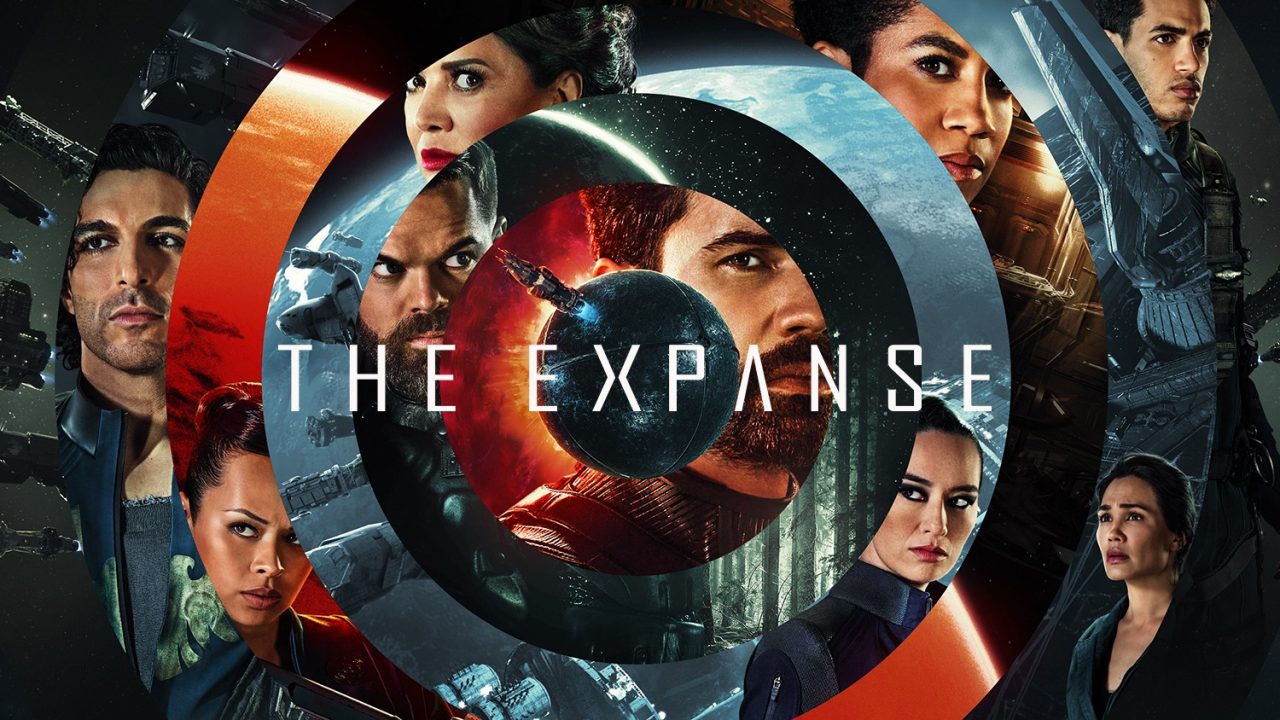Warning: This review contains spoilers up to the end of Season 5, and vague discussion of plot and character arcs from Season 6.
The Expanse Season 6 opens on Laconia – a planet that many fans expected not to see in the show – in a lush forest untouched by man. A young human, Cara, meets a mysterious alien creature – the namesake of the novella Strange Dogs. This storyline plays out in vignettes at the beginning of every episode of Season 6 and gives us a glimpse of the early stages of the Laconian colony through the eyes of a young girl. This is not the first time that a novella has been adapted vignette-style for the show; we saw similar treatment given to The Butcher of Anderson Station and Drive, but it’s the first time that one of these novellas has played out over the course of an entire season. It gives it the feeling that it’s going to collide with the main plot at the end or that the knowledge it gives us will enrich our understanding of the conflicts that play out in the rest of the season. So when it does neither of these things, it can’t help but feel like a bit of a let-down. Fans of the authoritarian Laconian regime might be satisfied with its inclusion but it does nothing to really add to the main plot at all. But then again, that main plot doesn’t really need adding to, because it’s awesome.
A final season comprising six episodes set off a lot of alarm bells in the fandom – rightly so, we all remember the disastrous final season of Game of Thrones – but The Expanse’s final six episodes are not holding back. The story that once followed a huge cast of characters in a system-wide conflict now follows four main plotlines: The Rocinante, the Free Navy, Avasarala and Drummer. All of these characters now inhabit ships and stations in or around the Belt. Gone is the location shooting of seasons 4 and 5.
The Rocinante is now working for Earth and Mars, hunting down Free Navy ships, killing Belters. Tensions are high on board as Naomi grapples with the moral weight of their actions, while still dealing with the trauma that last season put her through. Amos is questioning his place on the ship while training Clarissa to become a ship’s mechanic. Holden, for his part, is just doing his best to keep his family together, easing the tensions of the crew and putting on his best caring boyfriend pants for Naomi. Clarissa, meanwhile, is still struggling to prove that she isn’t a murderous maniac anymore. Naomi isn’t buying it and Holden seems wary. All of them feel the weight of Alex’s loss, his spectre hanging over every part of the ship. Holden is piloting the Rocinante now and doing a pretty great job of it, but he’s no replacement for Alex’s warmth and sunny disposition. To make matters worse, no one knows how to cook a decent meal.
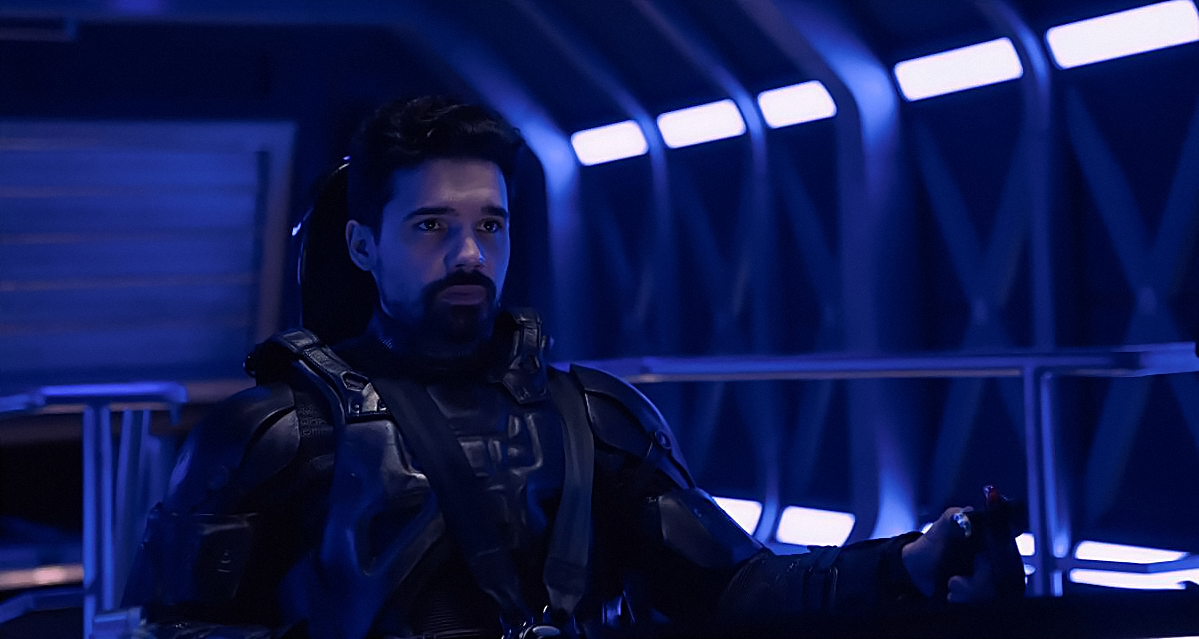
Barely Holden it together.
These conflicts might seem a bit much at first but it quickly becomes apparent that they are tensions that need to be addressed. The way the show addresses them feels true to the characters and natural within the progression of the story, if a little rushed due to the time constraints of a six-episode season. One can’t help but feel like these conflicts might have been more fleshed out had the show had a longer final season, though whether that would have been better, I’m unsure. Such a focus on the interpersonal struggles of the Roci crew could have led to a season that felt like a soap opera rather than a space opera.
A major theme on the Rocinante in Season 6 is the clash between idealism and realism. Holden has always been an idealist, but fighting the Free Navy puts him in the position of hunting down the people he’s spent years championing to the rest of the system. For Naomi it’s even worse: these are her people, once upon a time she might have been on their side. As they grapple with these existential questions, the rest of the crew (and Bobbie) begin to wonder if they have the stomach to do what has to be done. It’s an impossible situation and to make matters worse, Naomi’s son Filip is fighting for the Free Navy.
Things are clearly not going well for Filip – he’s acting out, leveraging his position as a hero of the Belt to drink and screw his way across Ceres station. It’s clear that meeting his mother in season 5 has had a profound effect on him but not even he really knows how yet. When a really bad decision puts him on the outs with his father, he finds himself forced to confront the person he is and the person his father wants him to be. Marco, meanwhile, begins to rely more and more on the capable Rosenfeld Guoliang, a character who will often have you wondering “wait, why isn’t she in charge?” as Marco’s leadership skills come into question.
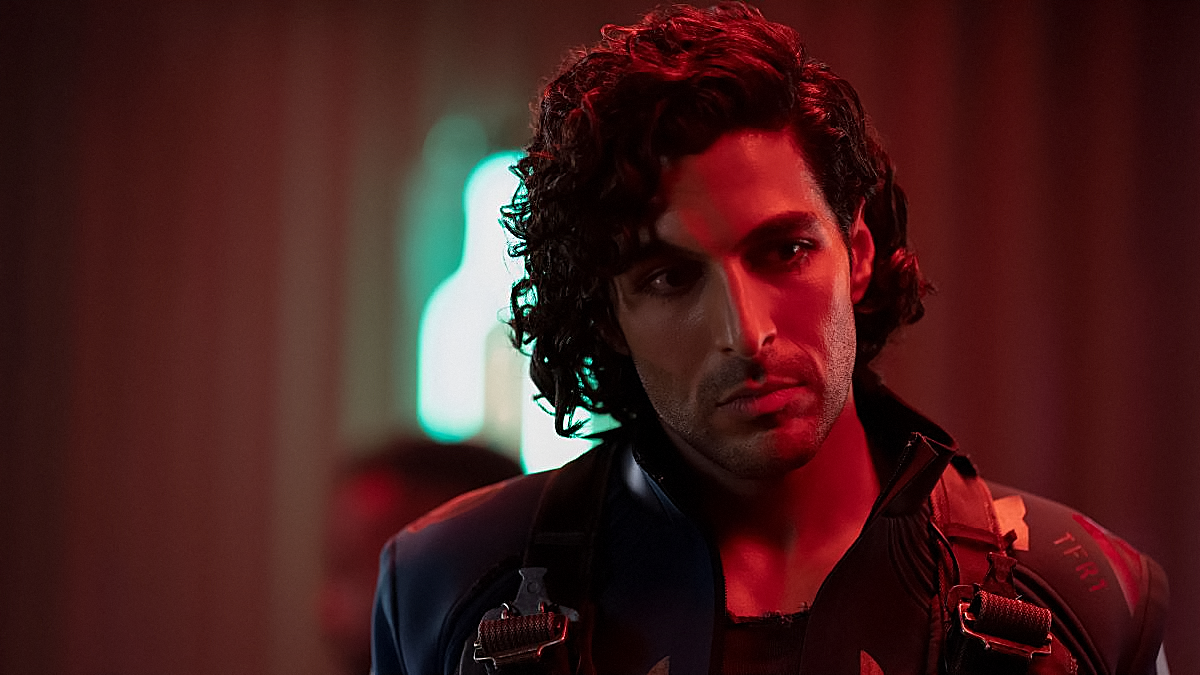
Marco may be charismatic but he’s not the leader the Belt needs.
This plotline is one that was neatly set up by the amount of time we spent exploring Marco’s hangups about Naomi and Holden last season. His obsession with revenge becomes a driving force for him in Season 6 and deftly illustrates that charisma is not the only thing that makes a good leader. His handling of his army begins to mirror how he treats his son – wildly shifting between high praise and harsh punishment. But Filip is not undeserving of punishment: his hedonistic excesses and poor decision making make him a volatile person to be around and some of his actions this season make him a less than sympathetic character. While it’s clear that he’s going through some shit, the journey Season 6 puts him on can feel a bit rushed at times, like a Cliff Notes character arc lacking the moments in between that flesh out the journey. This is not to say that the arc itself is bad or doesn’t work, simply that it feels like one out-of-place in the once-methodical story of The Expanse.
Drummer is on the run. Following her betrayal of the Free Navy at the end of last season there’s a hefty bounty on her head – one that only increases more as she evades and defeats the Free Navy at every turn. But that’s not the only stressor. The rifts that we saw in her family last season have only grown and poor Michio is cracking under the pressure of being in such high-stress situations all the time. Drummer’s story sees her trying to balance the precarious situation she’s in with striking back at Marco, but ultimately feels like a bit of a rehash of things we’ve seen Drummer do before. The family drama is something we saw last season (though admittedly it’s handled better this time around) and there’s even a knockoff Ashford (though admittedly, he’s a lot of fun). However, Drummer is given some really great scenes towards the end of the season that more than make up for what comes before.
Avasarala’s plotline is less focused on her journey this time around and serves as more of a point of view on the political state of the war with the Free Navy. Her own journey was largely concluded last season and though there are some nods to her ego and coping mechanisms, they ultimately don’t lead anywhere. Her story is far more about her ordering people around and looking fly while doing it. Worry not, fans of Avasarala drip, you will not be disappointed.
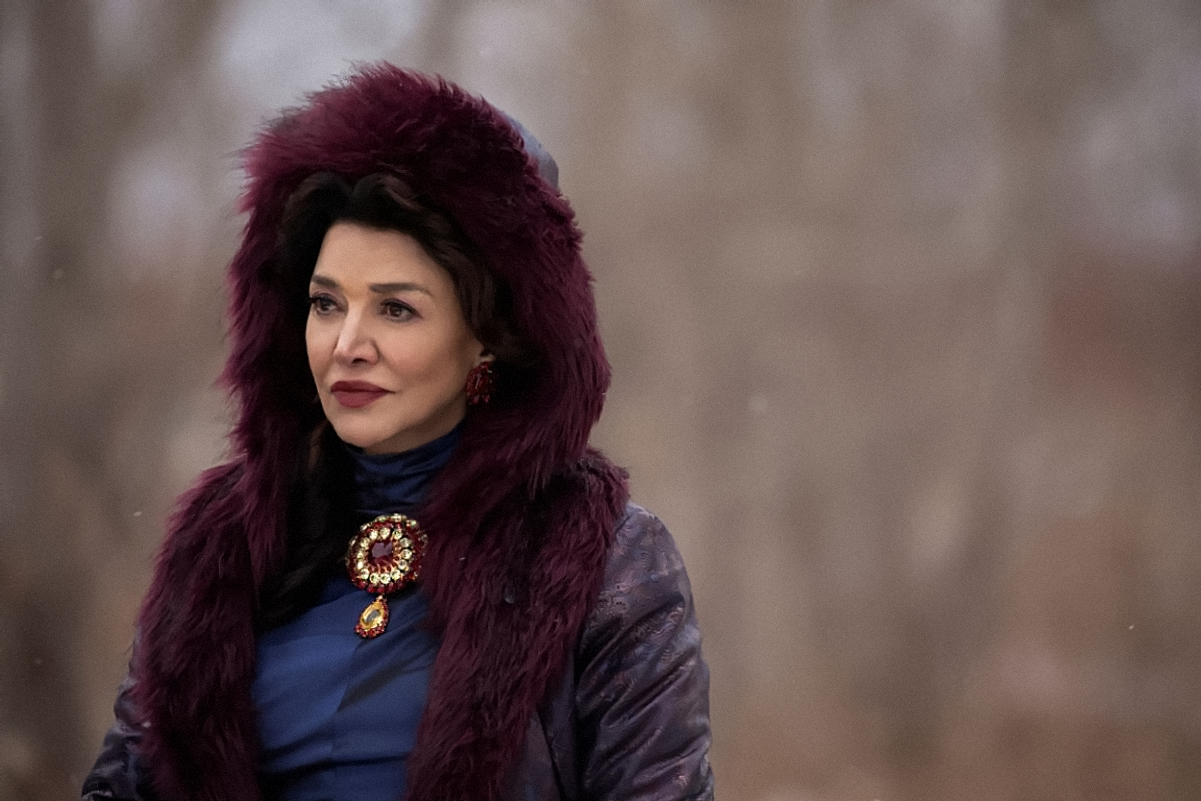
A mere taste of what’s to come.
On a technical front, The Expanse is still one of the best looking shows on television from a VFX standpoint. The key difference this time around is what we see on Laconia: this is the first time The Expanse has attempted large scale CG creatures and for a television show it’s quite effective. Don’t expect miracles, but the strange dogs are far from the worst CG animal television has ever given us. Though these kinds of alien creatures are a common fixture across sci-fi they’re something of a rarity in The Expanse. It lends them a sense of wonder that a lot of sci-fi fails to capture or simply isn’t going for. It’s the same sense of wonder that the show was able to produce when the Roci crew first set foot on Ilus in Season 4. Though, the uncanny valley TV-budget CG does dampen this feeling a bit.
As one might imagine from the final season, Season 6 serves up probably the best space battles The Expanse has ever given us. There’s a sense of weight and danger to space battles in The Expanse that you really cannot find anywhere else on television or in film and Season 6 ramps this up to ridiculous levels. Providing battles that should serve as a blueprint for sci-fi action sequences for years to come. Not only is there the rigorous adherence to scientific accuracy that we’ve come to expect from this show but Season 6 neatly weaves tension, emotion and narrative beats in a way that we’ve rarely seen the show pull off before. These battles are far more than just setpieces and many of the decisions that characters make during them have serious repercussions for the rest of the story. Somehow, the directors of The Expanse manage to juggle all of these disparate elements with a visual flair that is stunning and usually easy to follow. There are a couple of editing choices during battles that had us scratching our heads about exactly what had happened, but usually things became clear soon after.
While no one stands out this season quite like Dominique Tipper did in Season 5, acting is fantastic across the board. Every major character is given at least one moment to shine and these actors make it clear just how well-acquainted they’ve become with their characters over the 6 years they’ve been playing them. Meanwhile, Jasai Chase-Owens handles the aforementioned difficult journey that Filip goes through this season with ease and newcomers like Kathleen Robertson provide standout performances even at this late stage in the show.
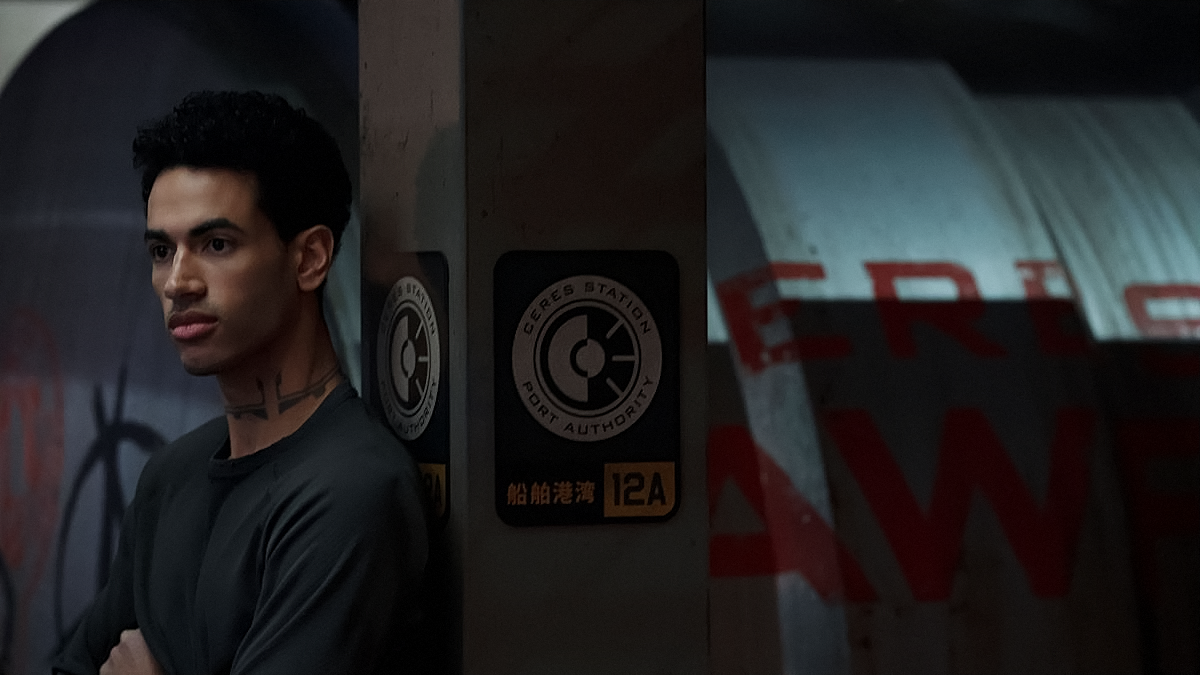
Jasai Chase-Owens has a lot of ground to cover this season.
For fans of the more existential threats of the show – the protomolecule builders and whatever it is that killed them – you may be somewhat disappointed that the final season doesn’t answer many of the lingering questions you might have. While these threats are ever-present in the Expanse universe and certainly have a place in Season 6, there’s little resolution to any of these plotlines. Ultimately, six episodes is too little to really do them justice and it seems the writers of the show have opted to leave them on the table in the hope – or perhaps even the knowledge – that there will be an opportunity to resolve them later. I know this will come as a disappointment to many fans who want this storyline front and center in The Expanse’s final season but to me, that’s never been what the show is about. It’s about people and their stories.
These stories all begin to converge in the latter half of the season and culminate in a series of narrative and emotional payoffs that are as well-earned as they are spectacular in their execution. The final episode is one of the best episodes The Expanse has ever given us and delivers spectacle and emotion in equal measure as it draws this sci-fi epic to a close. Moments along the way this season may feel rushed and there are certainly some plotlines left unresolved but I challenge any Expanse fan to tell me they were thinking about any of that watching the final episode unfold.
The Expanse’s final season may not be the best season that the show has given us, but the simple fact that we get to have a conclusion to this story on screen is a miracle. The fact that it’s both thrilling and emotionally satisfying certainly doesn’t hurt, but for a show like The Expanse, six seasons is a triumph and one that should not under any circumstances be understated. It has been a privilege to be able to write about this universe, hang out with fans, meet the cast and crew and be a part of this journey for the past three years. We hope to be able to continue supporting this universe no matter what the future holds for it (#sixseasonsandamovie).
